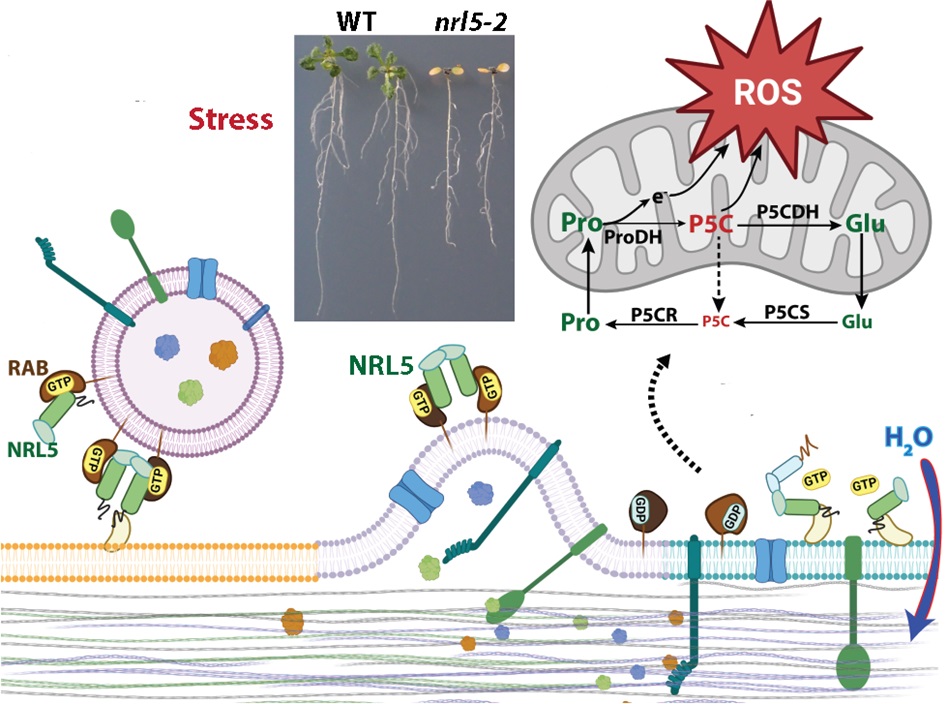The nonphototrophic hypocotyl 3 (NPH3) domain protein NRL5 is a trafficking-associated GTPase essential for drought resistance
Neha Upadhyay-Tiwari , Xin-Jie Huang, Yi-Chen Lee, Shashi Kant Singh, Chuan-Chi Hsu, Shih-Shan Huang, and Paul E. Verslues
Plant productivity is impaired by even small decreases in water availability during drought. While this is of increasing global concern because of climate change, our ability to improve plant stress resistance is limited by a lack of understanding of how plant cells detect and respond to water limitation. The Verslues laboratory found that mutation of the Non-Phototrophic Hypocotyl3 (NPH3)-domain protein NRL5 causes plants to become hypersensitive to drought stress because of mis-regulated proline metabolism. The NPH3-domain is a protein feature that is unique to plants and was of unknown function despite the fact that NPH3-domain proteins have been implicated in important signaling pathways such as phototropism and hormone response. We demonstrated that NRL5, and other NPH3-domain proteins, have GTPase activity despite having no similarity to known GTPases. The NPH3 domain was required for NRL5 to interact with and control the function of proteins involved in vesicle trafficking. Trafficking interactions are in turn important for NRL5 polar localization. These results demonstrate that NPH3 proteins constitute a previously unsuspected layer of regulation controlling intracellular trafficking and cellular polarization in plants. The results also demonstrate that correct regulation of proline metabolism is critically important for drought resistance.
Science Advances, 10(32), eado5429.
DOI: 10.1126/sciadv.ado5429